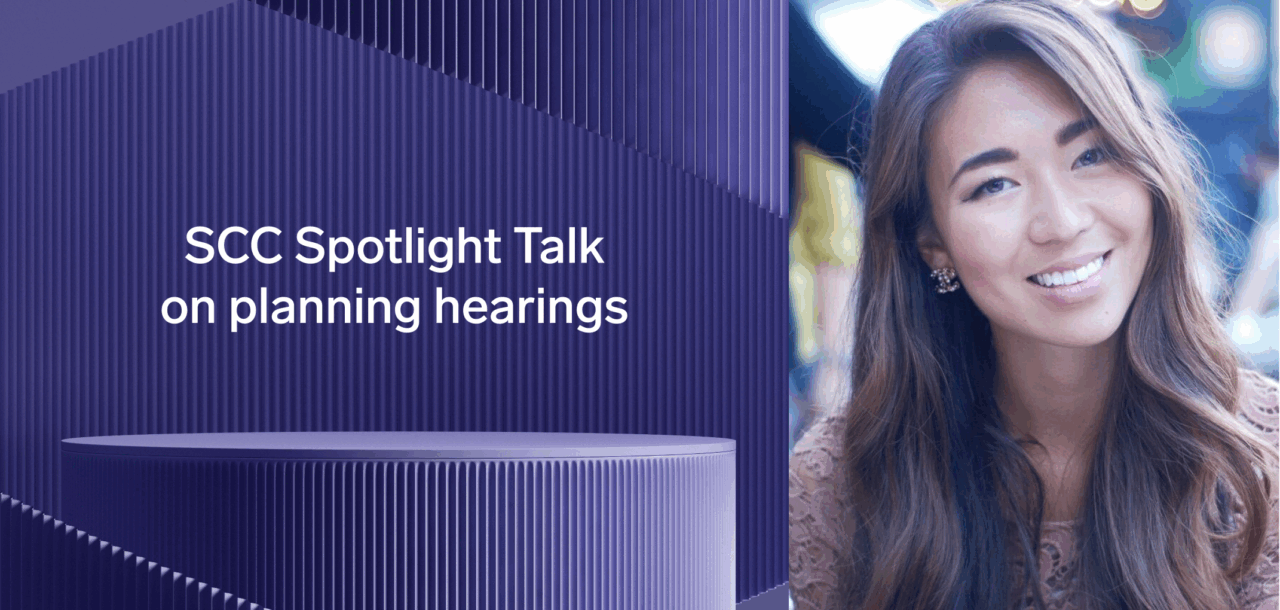SCC Spotlight Talk: Linda Fuglsang
The Stockholm International Hearing Centre (“SIHC”) has been crucial in maintaining Sweden’s role in international dispute resolution by meeting the demand for world-class hearing venues. In this SCC Spotlight Talk, we meet Linda Fuglsang, SIHC’s Head of Sales, who shares insights into the work of the SIHC as well as some advice to parties when planning their hearings.
Published

The SIHC forms part of what international arbitrator Doug Jones has named the “Stockholm Model”. Could you tell us a little bit about the SIHC?
We hosted our first arbitration 15 years ago at our first conference and event venue 7A Strandvägen. With beautiful premises and staff that are truly passionate about service, we jumped straight into the arbitration world, eager to niche part of our concept for this. We noticed that there was a gap in the market for hosting international hearings in Stockholm, with no obvious place to turn to. Together with the support and guidance from Annette Magnusson, former Secretary General of the SCC, we formed the concept of the SIHC. While the arbitration community may be relatively small, it is dedicated and loyal. The SIHC would not be where it is today without the invaluable feedback and trust from our clients and the SCC. SIHC is the now natural place to come for your hearing with no distractions from your main focus – solving disputes – we take care of the rest. The SIHC boasts three venues in central Stockholm that welcome international hearings all year round and I am so happy to have been a part of it almost since the very beginning.
What are the typical kinds of cases you see coming to the SIHC?
Mostly we see large and advanced international cases coming to the SIHC, with a majority concerning energy, construction or infrastructure disputes. These cases often have a hearing schedule that lasts for a week and up to several months. But we also host smaller, primarily domestic, hearings that last around 1-3 days.
Arbitration is a unique way of resolving disputes. What are some of the key aspects of arbitration the SIHC takes into account when hosting an arbitration hearing?
For us, the key aspects are definitely confidentiality, flexibility, and technical experience. At the SIHC, it is crucial that our guests (who are often regulars) feel at home in a secure workspace and that they feel that we provide a complete concept. We want it to be easy for the client to book with us and get started. Therefore, we offer three basic packages – small, medium and large, with everything you need to host a basic hearing. That includes your main hearing room, breakout rooms for the parties, and technical equipment such as screens, microphones, sound recording and most importantly, a dedicated AV technician that you can rely on. Thereafter you can make several additional choices to your booking, such as food & beverages, more rooms, more advanced technical equipment such as translation booth, EPE services or transcription etc. We also collaborate with neighbouring hotels for discounted prices for our guests coming from abroad who need accommodation. We have gathered experience over a long time now and we know what the client needs for a smooth proceeding.
What is the best advice you can give to parties on what to do and what to avoid to ensure their hearing runs smoothly?
Starting with advice on what to do, parties should clarify their technical needs as soon as possible in their case planning. For example, some more advanced technical equipment needs more preparation than our basic packages, translators might need to find availability, equipment sometimes needs to be transported and installed, transcribers might have to find suitable flights to attend, and so on. It’s also important to find out in advance if your participating witnesses will be examined remotely or in person at the hearing. Sound and timely preparation ensures our technicians are able to prepare suitable equipment and integrations for sound recordings. We have seen that the technical aspects of a hearing have become more important than before and during the pandemic we developed cutting-edge solutions that are still a step ahead of others.
Turning to things to avoid, it is when different case participants contact the SIHC separately, each asking different questions or requesting new add-ons. The best way of organising a hearing is to appoint one delegate from each side to oversee the contact with us. The designated contact persons should put together the requests, information, and questions to send to us, so we can efficiently prepare and ensure a smooth hearing.
Article keywords
Stockholm International Hearing Centre (SIHC), Hearing venues, Arbitration hearings, Sweden, Energy disputes, Construction disputes, Infrastructure disputes, Hearing facilities, Confidentiality, Technical equipment, Remote hearings, Hybrid hearings, Case management, Hearing preparation, Translation services, Transcription services.